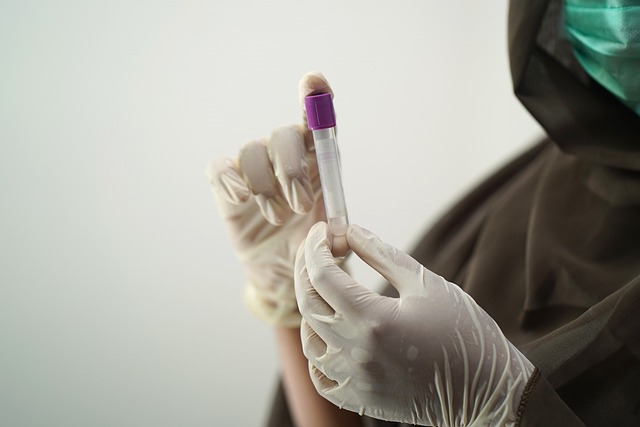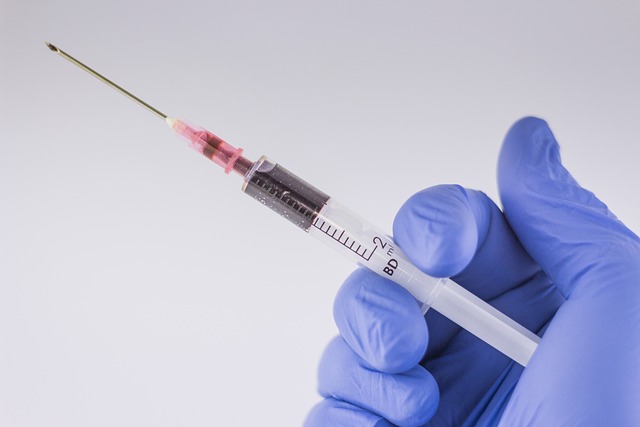The Standard Liver Blood Test UK plays a crucial role in diagnosing and managing reproductive health issues by providing insights into liver function, which has a significant impact on hormone synthesis and metabolism. This test includes measurements of key liver enzymes like ALT, AST, GGT, and ALP, which can indicate hormonal imbalances or related conditions such as polycystic ovary syndrome (PCOS) and androgen-excess disorders. It also helps detect early signs of liver dysfunction that might impact reproductive health indirectly. The integration of this test with hormone analysis allows for a more comprehensive understanding of a patient's condition, facilitating precise treatment plans that address both endocrine and hepatic concerns simultaneously. This holistic approach enhances diagnostic accuracy and enables healthcare providers to tailor treatments effectively, improving overall health outcomes for individuals with reproductive disorders.
Navigating reproductive health challenges often hinges on a profound understanding of hormonal dynamics. This article delves into the pivotal role of hormone analysis in pinpointing and addressing reproductive issues. We will explore how a Standard Liver Blood Test UK serves as an integral component in this process, offering insights into overall liver function that are crucial for accurate hormonal evaluations. By integrating these metrics, healthcare professionals can achieve a more comprehensive diagnosis, leading to tailored treatment plans and improved patient outcomes. Join us as we unravel the intricate relationship between liver health, hormones, and reproductive well-being.
- Understanding Hormone Analysis and Its Role in Reproductive Health Assessment
- The Significance of a Standard Liver Blood Test UK in Hormonal Evaluation
- Integrating Liver Function Metrics with Hormone Analysis for Comprehensive Reproductive Health Diagnosis
Understanding Hormone Analysis and Its Role in Reproductive Health Assessment

Hormone analysis plays a pivotal role in the assessment of reproductive health, offering insights into the delicate hormonal balance that underpins fertility and overall wellbeing. This analytical process involves measuring the levels of key reproductive hormones such as follicle-stimulating hormone (FSH), luteinizing hormone (LH), estrogen, progesterone, and testosterone. These hormones regulate various aspects of the menstrual cycle in women and sperm production and sex drive in men. A thorough hormone analysis can pinpoint imbalances or dysfunctions that may lead to reproductive issues, thereby informing tailored treatment approaches.
In the UK, a Standard Liver Blood Test is often included in preliminary assessments for those with suspected hormonal or reproductive disorders. This is because liver health can influence hormone synthesis and metabolism, particularly concerning sex hormones like estrogen and testosterone. The liver’s role in detoxifying excess hormones and processing substances that regulate hormone production makes it a crucial component of the endocrine system. By monitoring liver function through tests such as alanine aminotransferase (ALT) and aspartate aminotransferase (AST), healthcare providers can better understand the impact of liver health on overall hormonal balance and address potential reproductive issues more effectively.
The Significance of a Standard Liver Blood Test UK in Hormonal Evaluation

When addressing reproductive issues, healthcare professionals often include a Standard Liver Blood Test UK as part of the initial evaluation process. This test measures liver function enzymes such as alanine aminotransferase (ALT), aspartate aminotransferase (AST), gamma-glutamyl transferase (GGT), and alkaline phosphatase (ALP). Hormonal imbalances can sometimes manifest with liver function abnormalities, which may not be directly related to reproductive health but can be indicative of underlying conditions affecting hormone production or metabolism. For instance, polycystic ovary syndrome (PCOS) and other androgen-excess disorders can lead to hepatic steatosis, or fatty liver. Similarly, conditions like liver cirrhosis can affect hormonal pathways and impact reproductive function. Therefore, the Standard Liver Blood Test UK serves as a valuable tool in assessing overall health and identifying potential contributors to reproductive issues, thereby allowing for more targeted treatment approaches. Additionally, this test can detect early signs of hepatic dysfunction that might otherwise go unnoticed, potentially influencing hormonal evaluations and the management of fertility-related conditions. It is a crucial component in the holistic approach to diagnosing and treating reproductive disorders, ensuring patients receive comprehensive care for their hormonal health concerns.
Integrating Liver Function Metrics with Hormone Analysis for Comprehensive Reproductive Health Diagnosis

A robust diagnostic approach for reproductive health concerns integrates hormone analysis with liver function metrics, offering a more holistic understanding of a patient’s condition. The Standard Liver Blood Test UK serves as a pivotal tool in this comprehensive evaluation. It measures key indicators such as Alanine Transaminase (ALT), Aspartate Transaminase (AST), Alkaline Phosphatase (ALP), and Gamma-Glutamyl Transferase (GGT), which can reflect the liver’s overall health and function. Reproductive issues are often intertwined with hepatic health; for instance, polycystic ovary syndrome (PCOS) has been linked to altered liver enzyme profiles. By incorporating liver function tests alongside hormone assessments, healthcare providers can gain a more nuanced view of the patient’s endocrine status, leading to more accurate diagnoses and personalized treatment plans. This comprehensive approach not only enhances the precision of diagnosis but also paves the way for targeted interventions that address both reproductive and hepatic health concerns concurrently.
In conclusion, hormone analysis plays a pivotal role in addressing reproductive issues, offering insights that can transform patient care. The integration of a Standard Liver Blood Test UK is particularly noteworthy as it complements hormonal evaluations, providing a holistic approach to diagnosing and managing reproductive health concerns. This synergy ensures that clinicians have access to comprehensive data, facilitating more informed decision-making. For individuals experiencing reproductive challenges, this advancement in medical assessment can lead to personalized care, improved outcomes, and enhanced quality of life. Understanding the interplay between hormonal activity and liver function has become an integral part of modern healthcare, underscoring the importance of a multi-faceted approach to reproductive health assessment.
